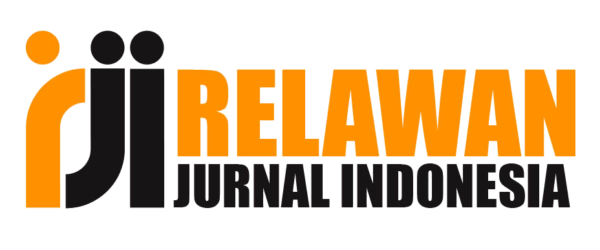Pedagogical Factors for the Development of Students' Professional Competence in the Educational Process: A Study in Uzbekistan
Abstract
Keywords
Full Text:
PDFReferences
Akramova, G. R., & Mamurova, D. I. (2025). Developing teachers' pedagogical competence. Multidimensional Research Journal. 88-92
Akhmedov, B. A. (2021). Simulation-based pedagogy in universities. Journal of Educational Innovation, 5(4), 30–45.
Atkinson, G. (2016). Work-based learning and work-integrated learning: Fostering engagement with employers. Research summary. 978 1 925173 59 8
Baig, M. I., & Yadegaridehkordi, E. (2023). Flipped classroom in higher education: A systematic literature review and research challenges. International Journal of Educational Technology in Higher Education, 20.
Billett, S. (2022). Promoting graduate employability: Key goals, and curriculum and pedagogic practices for higher education. In Graduate employability and workplace-based learning development: Insights from sociocultural perspectives (pp. 11-29). Singapore: Springer Nature Singapore.
Black, P., & Wiliam, D. (2009). Developing the theory of formative assessment. Educational Assessment, Evaluation and Accountability, 21(1), 5–31. https://doi.org/10.1007/s11092-008-9068-5
Chsherbakova, Y. (2024). Work-Integrated Learning: Barriers and experiences. Высшая школа Казахстана.
Cooper, L. (2010). Work integrated learning: A guide to effective practice. Taylor & Francis.
Danielson, C. (2007). Enhancing professional practice: A framework for teaching. AsCD.
Delanoy, N., & Chen, D. (2025). Work Integrated Learning and Soft Skill Development: A Case Analysis in Northwest China. In Work-Integrated Learning in Adult Education for Diverse Workplaces (pp. 61-80). Cham: Springer Nature Switzerland.
Doolan, M., Piggott, B., Chapman, S., & Rycroft, P. (2019). The benefits and challenges of embedding work-integrated learning. Australian Journal of Teacher Education, 44(6).
Fakhrutdinova, A. V., Ziganshina, M. R., Mendelson, V. A., & Chumarova, L. G. (2020). Pedagogical competence of the high school teacher. International Journal of Higher Education, 9(8), 84–95.
Fletcher, A. (2005). Meaningful student involvement: Students as partners in school change. SoundOut.
Freeman, S., Eddy, S. L., McDonough, M., et al. (2014). Active learning increases student performance in STEM. Proceedings of the National Academy of Sciences, 111(23), 8410–8415.
Hake, R. R. (1998). Interactive-engagement vs traditional methods in physics courses. American Journal of Physics, 66(1), 64–74.
Hong, Q. N., Pluye, P., Fàbregues, S., Bartlett, G., Boardman, F., Cargo, M., ... & Vedel, I. (2023). Mixed methods appraisal tool (MMAT) version 2018: user guide 2018.
Ismailova, G. F. (2025). Enhancing professional competence through integrated education and independent learning. Web of Teachers: Inderscience Research, 3(2), 55–61.
Jackson, D., & Dean, B. A. (2023). The contribution of different types of work-integrated learning to graduate employability. Higher Education Research & Development, 42(1), 93-110.
Johnson, T. (2022). Work-integrated learning in technical universities. Vocational Education Journal, 30(1), 12–25.
Keevy, J. (2003). Level-setting and recognition of learning outcomes. UNESCO.
Lagubeau, G., Tecpan, S., & Hernandez, C. (2019). Active Learning reduces academic risk. arXiv.
Lee, S., & Park, J. (2018). Technology-enhanced active learning in higher education. International Journal of Instructional Media, 45(2), 113–125.
Mamayoqubova, S., & Begmatova, D. (2023). Pedagogical conditions of developing professional competence. BIO Web of Conferences, 65, 10025. https://doi.org/10.1051/bioconf/20236510025
Ministry of Higher Education Policy Paper. (2019). Policy document, Uzbekistan.
Karimov, A. (2019). Curriculum modernization in Uzbekistan’s higher education. Uzbek Educational Review, 15(3), 45–60.
Mustafafoeva, D. A. (2020). Factors for developing the professional competence of teachers. International Journal of Psychosocial Rehabilitation, 24(4), 6839–6845.
OECD. (2019). Global shifts in labour markets and the competencies of future graduates. OECD Publishing.
Ogunleye, B., Zakariyyah, K. I., Ajao, O., et al. (2024). A systematic review of Generative AI for teaching and learning practice. arXiv. https://arxiv.org/abs/2406.09520
Page, M. J., McKenzie, J. E., Bossuyt, P. M., et al. (2021). The PRISMA 2020 statement. BMJ, 372, n71.
Prince, M. J., & Felder, R. M. (2006). Inductive teaching and learning methods. Journal of Engineering Education, 95(2), 123–138.
Raelin, J. (1997). A model of work-based learning. Organization Science, 8(6), 563–582.
Reeve, J., Jang, H., Carrell, D., Jeon, S., & Barch, J. (2004). Enhancing students' engagement. Motivation and Emotion, 28(2), 147–169.
Ruziev, K., & Rustamov, D. (2016). Higher education in Uzbekistan: Reforms and the changing landscape. Economics Working Paper Series No. 1604, University of the West of England.
Rumiantseva, K., et al. (2023). The importance of multimedia means usage. Cadernos de Educação Tecnologia e Sociedade, 16(3), 665–674.
Salinas-Navarro, D. E., & Vilalta-Perdomo, E. (2025). What Active Learning and Authentic Assessment in Higher Education Can Do for the World. In The Emerald Handbook of Active Learning For Authentic Assessment (pp. 353-372). Emerald Publishing Limited.
Sarvinoz, U., & Zebo, B. (2023). The professional competence of teachers. Eurasian Journal of Academic Research, 3(1), 45–48.
Smith, J., & Brown, L. (2021). Aligning curricula with employability demands. Journal of Higher Education Policy, 33(2), 200–218.
Supkhonovna, H. N. (2021). Technology for development of pedagogical competence. Asian Journal of Multidimensional Research, 10(5), 372–382.
Sümer, M. (2021). Online learning communities in teachers’ professional development: A systematic review. Anadolu Journal of Educational Sciences International, 11(2), 572–587.
Tang, Q. (2025). Bridging gaps in online learning: Digital divide. Journal of Education and Learning, 14(1), 161–176.
Tashkent Polytechnic Report. (2020). Internship outcomes in vocational education, Uzbekistan.
UNESCO. (2020). Uzbekistan teacher training report. UNESCO Tashkent.
Wang, J., Gill, C., & Lee, K. H. (2023). Effective mentoring in a work-integrated learning (WIL) program. Journal of Teaching in Travel & Tourism, 23(1), 20-38.
DOI: https://doi.org/10.17509/wapfi.v10i2.88991
Refbacks
- There are currently no refbacks.
Copyright (c) 2025 WaPFi (Wahana Pendidikan Fisika)

This work is licensed under a Creative Commons Attribution-ShareAlike 4.0 International License.
The Journal Wahana Pendidikan Fisika http://ejournal.upi.edu/index.php/WapFi/ is licensed under a Creative Commons Attribution-ShareAlike 4.0 International License
The Journal WaPFi (Wahana Pendidikan Fisika).
All rights reserverd. pISSN 2338-1027 eISSN 2685-4414
Copyright © Faculty of Mathematics and Science Education (FPMIPA) Universitas Pendidikan Indonesia (UPI)










